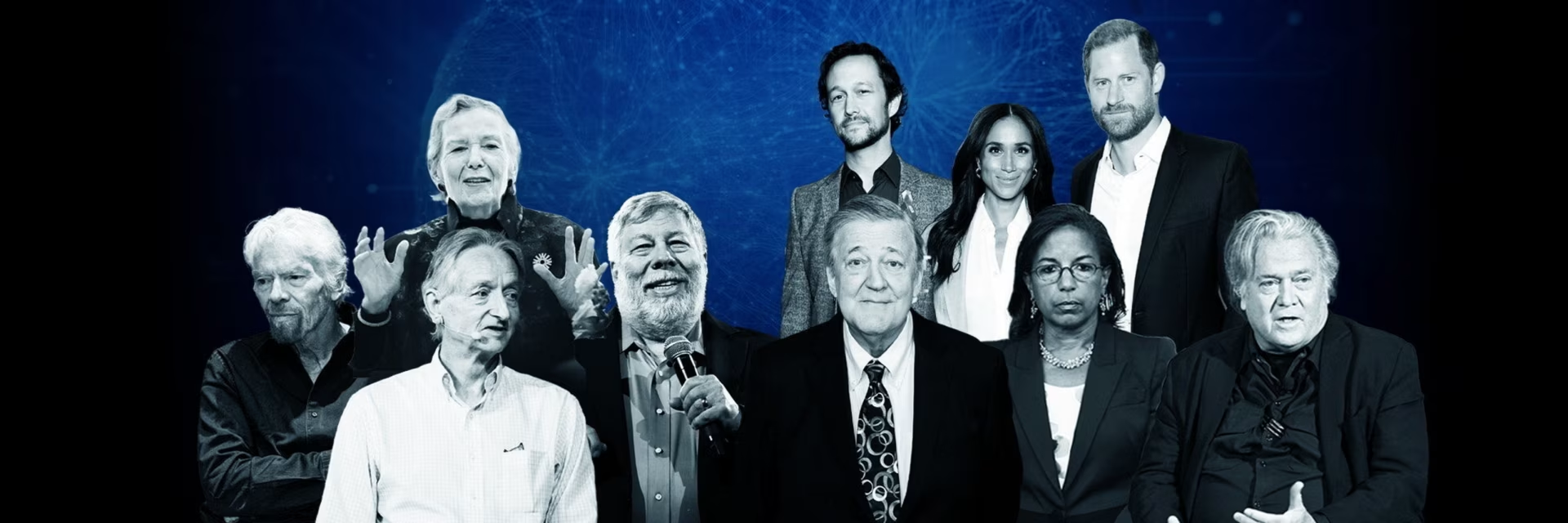
Politicians, corporate bosses, tech experts, celebrities and religious leaders call for ‘prohibition’ on advanced AI systems

Steve Bannon, Meghan Markle and Stephen Fry have joined a group of public figures calling for a “prohibition” on the development of so-called superintelligence in an unlikely alliance against advanced artificial intelligence systems.
More than 800 people including AI scientists, politicians, celebrities and religious leaders have signed a statement to prevent the creation of “superintelligence”, AI systems that are more intelligent than most humans.
“We call for a prohibition on the development of superintelligence, not lifted before there is broad scientific consensus that it will be done safely and controllably, and strong public buy-in,” the statement said.
Its signatories include the godfathers of AI Geoffrey Hinton and Yoshua Bengio, former Ireland president Mary Robinson and Prince Harry.
The Future of Life Institute (FLI), a non-profit campaign group, published the letter on Wednesday along with a poll showing 5 per cent of Americans support “the current status quo of unregulated development”.
Nearly three-quarters of respondents were in favour of robust regulation, according to the survey conducted by the campaign group.
The Institute’s president Max Tegmark told the Financial Times: “It is our humanity that brings us all together here . . . More and more people are starting to think that the biggest threat isn’t the other company or even the other country but maybe the machines we are building.”
Several leading Big Tech groups and AI start-ups including OpenAI, Meta and Google are locked in a fierce competition to be the first to develop “superintelligence” or artificial general intelligence. Both terms generally refer to AI systems that can outperform humans on most tasks.
In March 2023, five months after the launch of ChatGPT, tech experts including Elon Musk released a similar statement the FLI organised, which called for a six-month moratorium on all AI development. However, Musk’s xAI continues to build AI systems.
The latest statement is narrower and is “absolutely not calling for a pause on AI development”, Tegmark said.
“You don’t need superintelligence for curing cancer, for self-driving cars, or to massively improve productivity and efficiency,” Tegmark added.
Several prominent Chinese scientists have signed the statement, including Andrew Yao and Ya-Qin Zhang, former president of Baidu.
Other signatories include former government officials Susan Rice, national security adviser under then-president Barack Obama, and Mike Mullen, chairman of the joint chiefs of staff in the Obama and George W Bush administrations.
Tegmark said: “Loss of control is something that is viewed as a national security threat both by the West and in China. They will be against it for their own self-interests, so they don’t need to trust each other at all.”
Other signatories include Apple co-founder Steve Wozniak and Virgin co-founder Richard Branson, as well as faith leaders across religions.
The global regulatory landscape for AI is moving slowly, with the most advanced legislation, the EU AI Act, being rolled out in stages despite fierce criticism from industry.
In the US, states including California, Utah and Texas have enacted specific laws on AI. A proposed 10-year moratorium on AI regulation was pulled from the federal budget bill in July.
Source: https://www.ft.com/content/d8bdd05d-f7aa-42ae-b880-5bbfc3a6ddb4